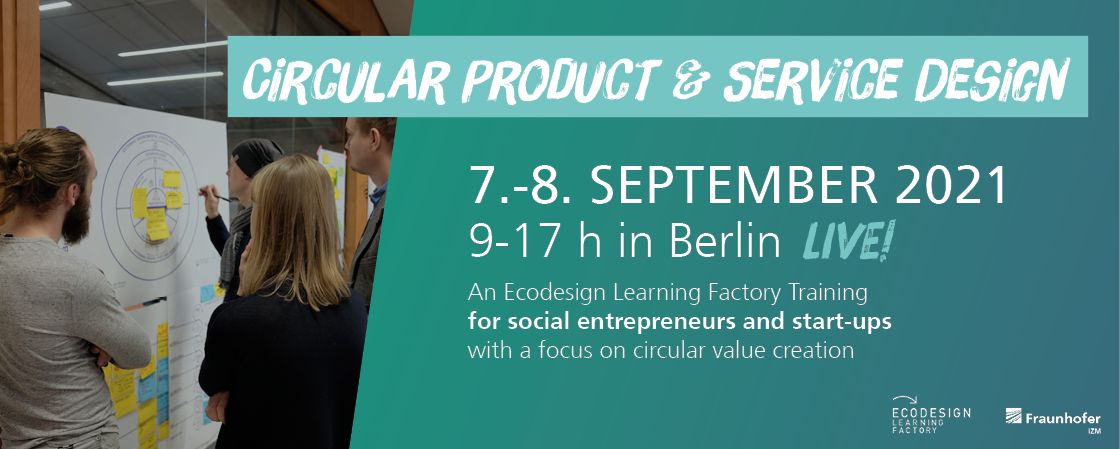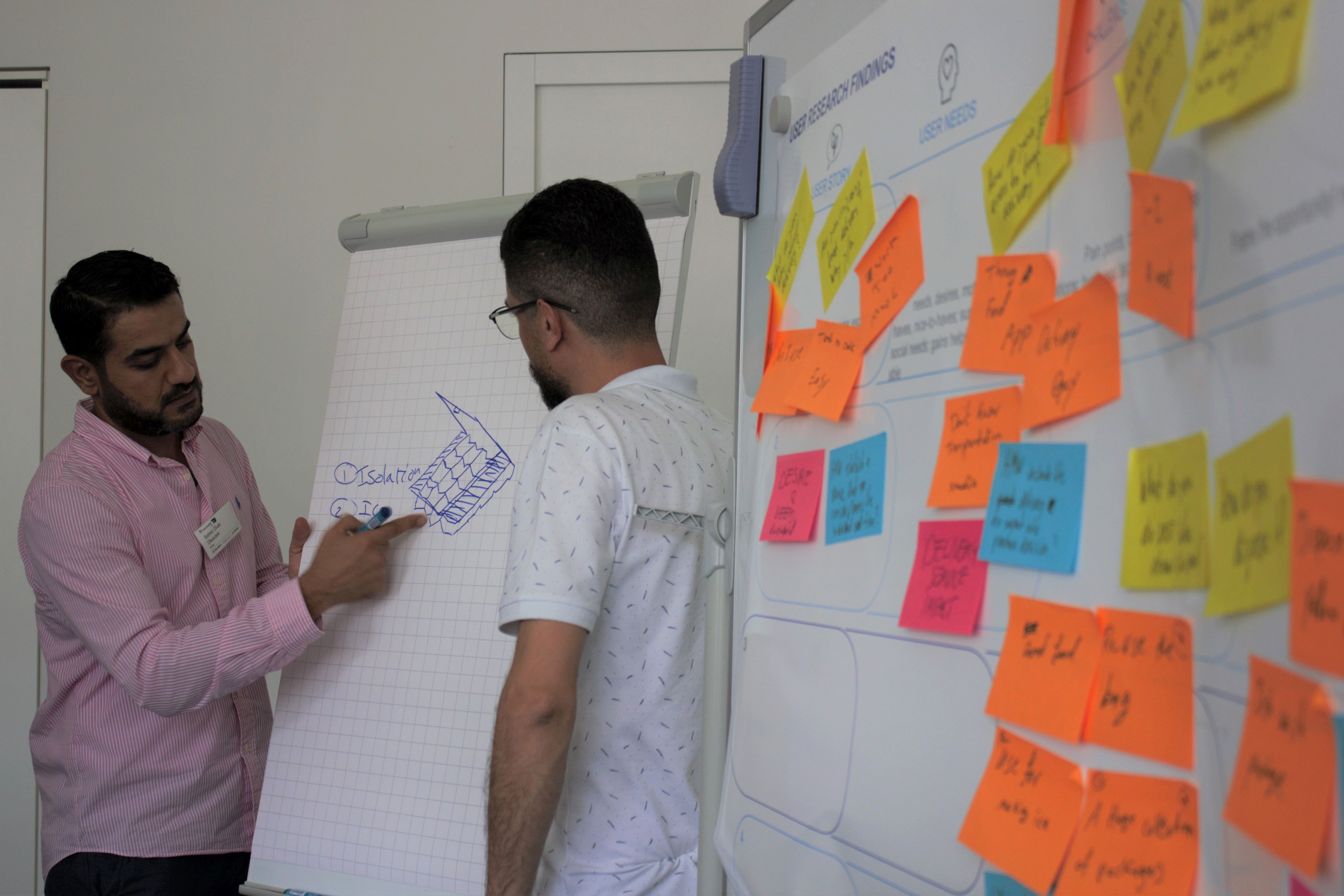Event Review
International visitors at Fraunhofer IZM’s Eco-Design Learning Factory
After a long journey from Palestine and a not quite as long journey from Hamburg, the participants of the Ecodesign Learning Factory learned one lesson above all: The principles of the circular economy can be used in many different ways to make products, services, and entire business models more sustainable.
Over two days of their stay, the participants from Palestine’s Birzeit University’s B-Hub and from a design agency from Hamburg had a chance to experience a varied and stimulating training programme. The interactive sessions took them through all steps that are important for the development of innovative products and services that are true to circular principles. With its emphasis on actual practitioners, the approach chosen by the Ecodesign Learning Factory aims to promote the prospects of the circular economy by combining design thinking and lifecycle thinking. With the help of user-centered ecodesign tools and methods, the participants were able to find out how they can minimize the environmental impact of their product ideas and, at the same time, maximize the benefits with services for everyone involved.
Another highlight was the behind-the-scenes look at Start-A-Factory, where hardware startups can try out and mature their ideas right through to market readiness in a modern work environment with access to high-quality tech facilities.
One of the participants, coming from an agricultural startup, sums up the experience of the two days: “What I’ve learned is that the design of truly green products starts long before I ever take up a pencil. Our businesses influence not only the people in our markets. When we manufacture even the smallest of products, we actually impact ecosystems on a much larger scale. We have to consider the vital interests of all living things affected by this, from the earliest designing stages of the design process, to make sure that the mark we leave on our world is not a negative one.” As part of their work, the start-up mentors attending from Palestine are overseeing projects that work on the early detection of plant diseases and the development of an electronic platform for selecting the most suitable wastewater treatment system for local communities.
Last modified:
 Fraunhofer Institute for Reliability and Microintegration IZM
Fraunhofer Institute for Reliability and Microintegration IZM
